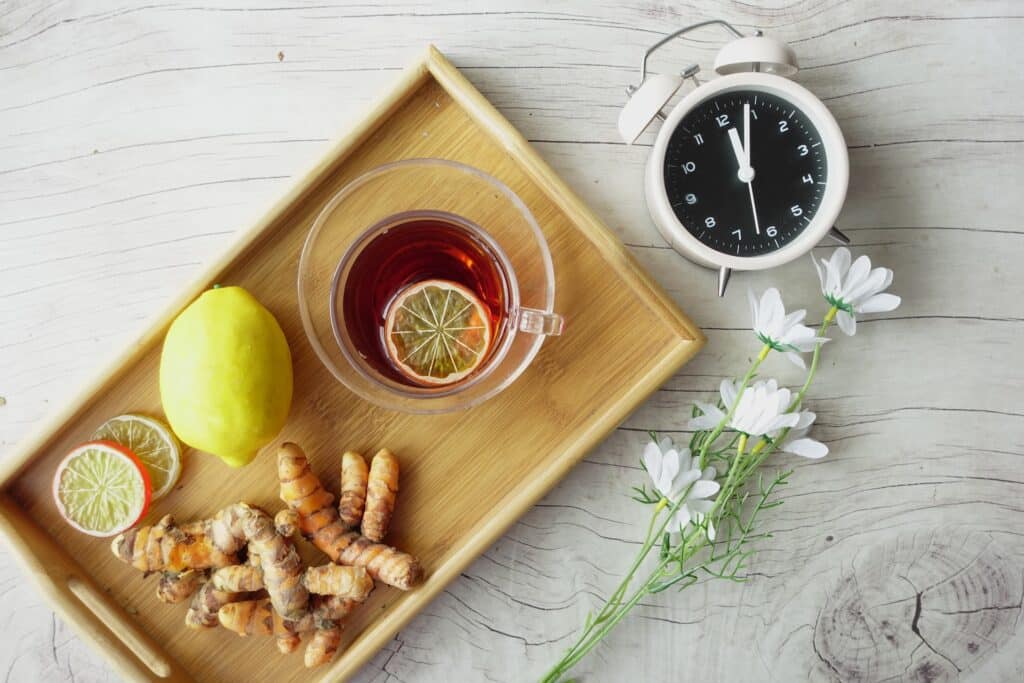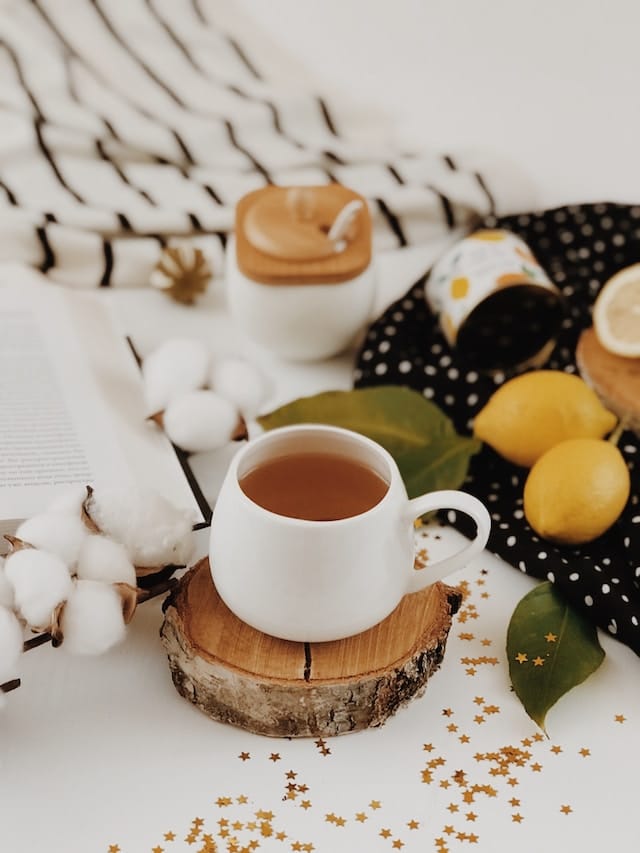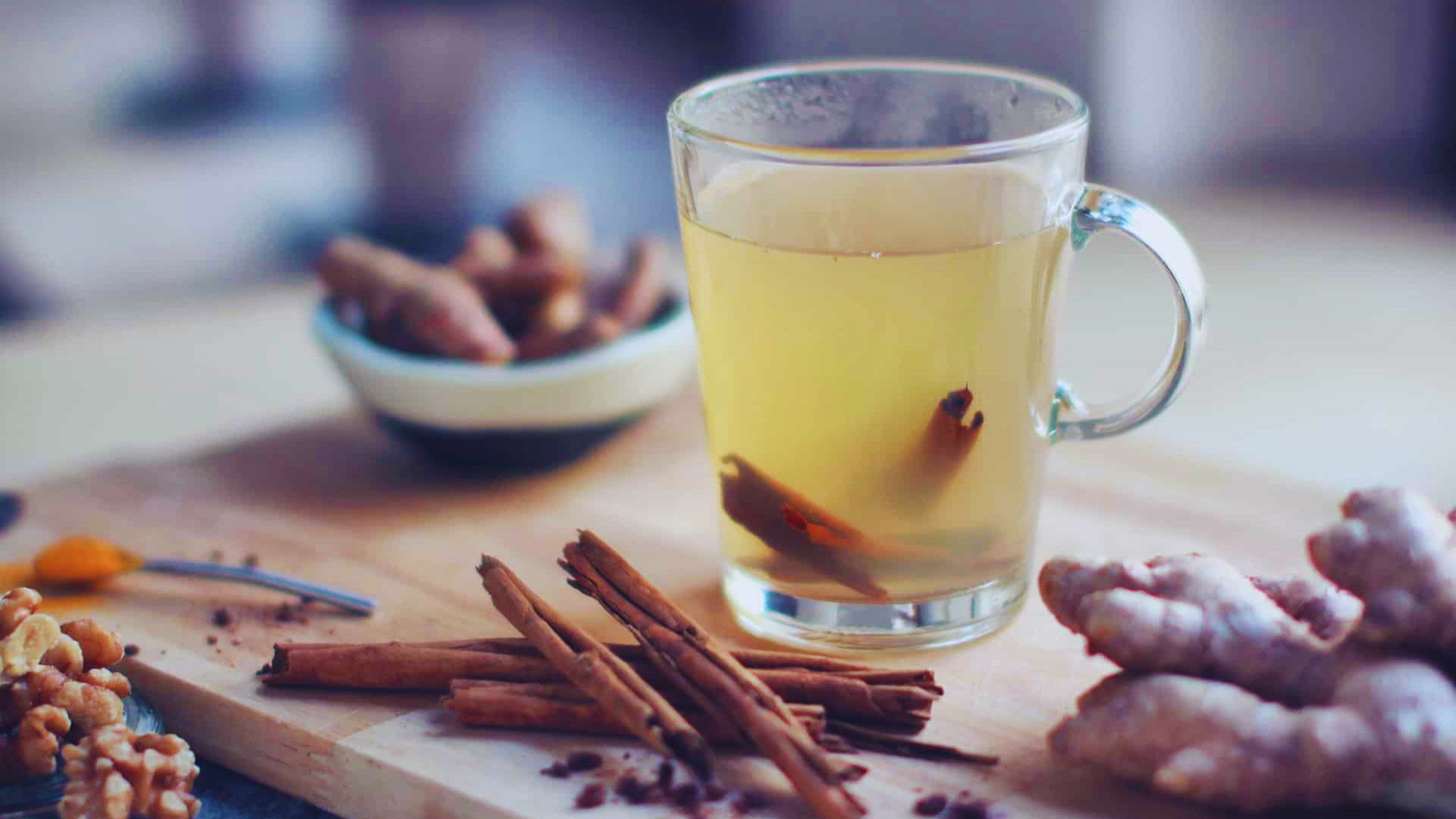You may have heard that old tea can make you sick. But is it true? Or is this just another urban legend that has no backing in reality?
There is no hard-and-fast rule about how long tea leaves will retain their flavor or become unsafe. However, many people who often drink tea have experienced health problems when drinking old leaves. This has led some drinkers to believe that old tea can make you sick.
In this blog post, we will further review the facts that support and refute the claim that old tea can make you sick.
How Does Old Tea Make You Sick?
Stale tea can make you sick because it can absorb air, light, and humidity through paper packaging and leaves, causing an off-taste or even harmful bacteria or mold growth in the tea.
It can happen when all of the useful compounds that provide the health benefits of tea leave the leaves, allowing other compounds to develop.
These compounds affect people depending on their chemical structures and how much they ingest.

Digestive Discomfort
As time passes, the tea leaves lose their flavor, turning into a black and brown sludge called “tannins.” Tannins are chemicals that give tea its astringency.
This is why older tea is said to be more bitter than fresher leaves. But when you ingest tannins, they can cause health problems like inflammation and heartburn.
Besides, they can also cause bloating, nausea, or stomach pain and pose problems to those with sensitive digestive systems.
If you notice a slimy film on the surface when you steep the tea, it has likely reached its expiration date. The film can be an indication of mold growing within the product.
When selecting tea, it’s best to avoid expired or stale teas that can lead to digestive discomfort and leave a bitter aftertaste in your mouth. Seek out teas within their expiration date or within six months to a year of being opened to ensure freshness and quality.
Mold or Bacterial Growth
If you’re an avid tea drinker who has been hoarding your favorite old teas for years, you should rethink your strategy.
One of the main concerns about old tea is mold or bacterial growth. Mold often appears as greenish-yellow spots or fuzz on the surface of the tea leaves, but you can also find it on the inside of tea bags.
Most manufacturers use paper tea bags, which they can’t wash or bleach effectively to remove any harmful bacteria lurking inside.
Bacterial growth can make people sick with symptoms like nausea, vomiting, stomach cramps, fever, and diarrhea if they eat it.
Also, some types of bacteria can be resistant to antibiotics. This makes it hard, if not impossible, to treat severe cases involving multiple organ failure when antibiotics are not working.
Even if you’re using loose-leaf tea, which doesn’t come in a bag, it can still get contaminated over time.
The result? A cup of bitter-tasting liquid may cause unpleasant side effects such as nausea, vomiting, diarrhea, abdominal cramps, and pain or fever.
Can You Get Food Poisoning from Tea?
Traditional black, oolong, green, and white teas are unlikely to carry the risk of food poisoning. Although you might taste the differences between these types of tea, they all come from the same plant and have similar health benefits.
Some teas use milk as an ingredient, and it’s easy for bacteria to grow in milk you didn’t refrigerate or store in a warm environment.
Generally, tea doesn’t usually spoil in the way milk does. It does, however, go stale over time. But this is due to the tea’s natural oils breaking down, not bacteria.
As a result, the tea may have a stronger smell and flavor, and it may not taste as good as when it was freshly brewed. Thus, tea is safe to drink unless it comes from a source that has come into contact with toxic water.
To improve your chances of avoiding discomfort from tea, ensure you buy your tea from a reputable company to make sure you get your tea fresh.
Can Old Tea Give You Diarrhea?
If you drink old, tainted tea, you could get sick from the coliform bacteria in the tea leaves. These bacteria can cause symptoms such as diarrhea, nausea, and vomiting.
While it’s unlikely that tea will make you sick, it’s important to store it properly so that it doesn’t go bad and become dangerous.

Can You Get Salmonella from Tea?
Tea is a healthy drink that usually contains antioxidants and has several health benefits. However, poor production and storage techniques can cause contamination of tea, especially with salmonella.
Drinking contaminated tea at room temperature and storing it in the refrigerator can both help salmonella survive.
Moreover, salmonella will stay active unless the brewing temperature is more than 55 °C.
Thus, the presence of contaminated tea in the market may pose a grievous risk to consumer health. The long-term storage and brewing may further increase the risk since these practices favor the growth of pathogens.
This is one more reason why you should make it a priority to buy your tea from a reputable company that has strict quality control in its factories.
Can You Get Lead Poisoning from Drinking Tea?
If you’ve ever wondered whether or not your tea could be giving you lead poisoning, the answer is a resounding no.
Some teas do indeed come from areas where the soil may have lead in it. But even if that were the case, these plants would need to be grown in soil treated with leaded gasoline or other sources of lead to cause any toxicity.
Plus, even if there was lead in the soil, it wouldn’t get into the tea leaves or water unless those plants received something (spray) containing lead.
Even then, only a tiny percentage of any plant would absorb the lead through its roots and leaves. The rest of your tea, when properly washed, would be perfectly safe to drink—and delicious!
Can Old Tea Be Toxic?
Yes, it can. Some kinds of old tea are even more toxic than fresh tea!
The reason for this is that there are many different kinds of toxins in tea leaves, and as they age and degrade, these toxins become more concentrated. Examples include green tea containing tannins, caffeine, oxalates, fluoride, and theobromine.
Besides, herbal teas are healthy alternatives to traditional teas. They contain essential vitamins and minerals, which help reduce stress and prevent disease.
However, improper preparation can be disastrous. Prolonged seeping (of comfrey and pennyroyal) will cause potent toxins to be present in the tea and cause severe reactions if brewed at too high temperatures.
Also, you shouldn’t drink strong tea if you’re pregnant or have a medical condition that requires you to pay attention to what you eat. The tea’s ingredients may cause side effects.
If you are pregnant or have concerns but want to drink tea, consult a doctor first.
How Long Does Tea Last?
Tea has a shelf life of about a year if you store it properly in its original (tin) packaging. But once you open a bag or tin of tea leaves and start brewing them regularly, their shelf life will decrease significantly.
This is because any contact with oxygen causes oxidation. It is the process by which food turns brown or stale and reduces its overall quality over time.
The only way to prevent oxidation is by using an airtight container that keeps oxygen away from your tea leaves until you’re ready for another cup!

Is Sun Tea Safe to Drink?
The sun may be the source of all life, but it can also be a veritable incubator for bacteria. You steep “sun tea” in the sun rather than brewing tea at high temperatures.
It’s becoming a popular alternative to traditional iced tea brewing because it doesn’t require electricity or other power sources (other than the sun).
But while drinking sun tea may save you some dollars, this practice can be risky. Sun tea provides an ideal environment for bacteria such as Alcaligenes Viscolactis, Klebsiella, Enterobacter, and E.coli to multiply and thrive. These pathogens are dangerous and can easily make you sick. Thus, sun tea is not safe to drink.
Does Tea Really Expire?
Tea does expire, but unlike expired milk, it is unlikely to kill you. Tea will change in taste and appearance as it ages. It won’t be harmful to you to drink old tea unless it’s contaminated, but the flavor will be lacking.
Tea expires faster because of oxidation. If it sits out exposed to the air for too long, oxygen seeps in and oxidizes its leaves. This produces chemicals called “polyphenols,” which give tea its flavor and color. But it can also give it an unpleasant taste when oxidized.
Do Tea Bags Go Bad?
Yes, tea bags can go bad if the package isn’t stored correctly. Bacteria can develop in tea bags over time when exposed to moisture.
A tea bag is best brewed fresh or within three months of purchasing it. Discard the packages immediately if you notice holes or tears in them.
Does Loose Leaf Tea Expire?
Loose-leaf tea lasts for two years if you don’t store it properly. To store tea well, keep it in an airtight container and avoid exposure to moisture, strong odors, and lights. We recommend a relatively dry place, such as a kitchen cupboard.
Does Tea Go Bad After Being Brewed?
Tea that you brewed in a pot or cup and did not consume immediately will eventually sour if kept at room temperature for more than 12 hours. It varies widely between kinds of tea. Some will be fine after 24 hours, while others will be extra bitter by then.
Conclusion
From processing to storage, tea can be vulnerable to bacteria, mold, and other impurities.
If you are using old tea leaves, you are more likely to get sick. Some teas are more likely than others to harbor bacteria, including salmonella, and the chances of this increase the older the tea gets.
Thus, it is best to store fresh tea leaves in an airtight container for a longer shelf life.

